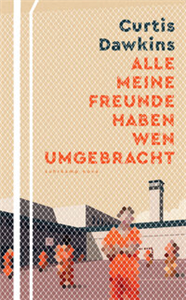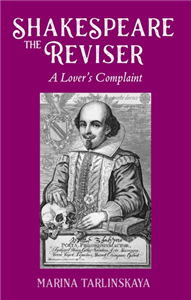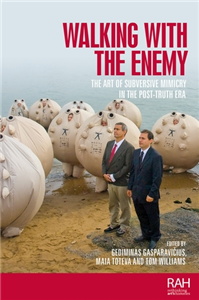Your Search Results
-
Promoted Content
-
Promoted ContentMarch 2018
Alle meine Freunde haben wen umgebracht
Stories
by Curtis Dawkins, Hannes Meyer
Curtis Dawkins schreibt aus ungewöhnlicher Perspektive. Den Weg des Schriftstellers hatte er eingeschlagen, in namhaften Magazinen veröffentlicht, geheiratet, drei Kinder bekommen. Dann tötete er auf Crack einen Mann. Jetzt sitzt er lebenslänglich im Knast. Und dort schreibt er Literatur, die taumeln lässt. Zwischen Härte und Schönheit, zwischen Gut und Böse, zwischen Liebe und Hass. Dieses Buch ist die kraftvolle literarische Anverwandlung eines Schicksals, es erzählt von Männern hinter Gittern und ihren Versuchen, etwas von dem zurückzugewinnen, was unwiderruflich verloren ist. Es spricht von Freiheit, Liebe und Familie aus der Sicht derer, die ihr Recht darauf verwirkt haben. Curtis Dawkins findet dafür eine massive Sprache, einen Sound voller Sehnsucht, Humor und Tragik. Alle meine Freunde haben wen umgebracht wird so zu einem neuen und streitbaren Meisterwerk amerikanischen Erzählens.
-
 Trusted Partner
Trusted Partner
-
 Trusted Partner
March 2015
Trusted Partner
March 2015So This Is Permanence
Joy Division - Songtexte und Notizen
by Curtis, Ian / Übersetzt von Böttcher, Jan; Vorwort von Curtis, Deborah; Herausgegeben von Savage, Jon; Herausgegeben von Curtis, Deborah
-
 Trusted Partner
January 1991
Trusted Partner
January 1991Manuskripte brennen nicht
Michail Bulgakow: Eine Biographie in Briefen und Tagebüchern
by Curtis, Julie / Englisch Geier, Swetlana
-
 Trusted Partner
Trusted Partner
-
 Trusted Partner
Trusted Partner
-
 Trusted Partner
Trusted Partner
-
 Trusted Partner
Literature & Literary StudiesApril 2020
Trusted Partner
Literature & Literary StudiesApril 2020Interweaving myths in Shakespeare and his contemporaries
by Janice Valls-Russell, Agnès Lafont, Charlotte Coffin
This volume proposes new insights into the uses of classical mythology by Shakespeare and his contemporaries, focusing on interweaving processes in early modern appropriations of myth. Its 11 essays show how early modern writing intertwines diverse myths and plays with variant versions of individual myths that derive from multiple classical sources, as well as medieval, Tudor and early modern retellings and translations. Works discussed include poems and plays by William Shakespeare, Christopher Marlowe and others. Essays concentrate on specific plays including The Merchant of Venice and Dido Queen of Carthage, tracing interactions between myths, chronicles, the Bible and contemporary genres. Mythological figures are considered to demonstrate how the weaving together of sources deconstructs gendered representations. New meanings emerge from these readings, which open up methodological perspectives on multi-textuality, artistic appropriation and cultural hybridity.
-
 Trusted Partner
Humanities & Social SciencesAugust 2011
Trusted Partner
Humanities & Social SciencesAugust 2011Volumes of Influence
by Kevin Theakston
Volumes of influence explores the work of a number of important books and key writers within the academic disciplines of politics and international relations. It revisits and re-evaluates some of the landmark or classic books in politics and international relations, and assesses the contribution of some of the most influential writers who have played a significant role in the development of these disciplines, who defined their subjects, set agendas and inspired. They remain significant and relevant, offering insights that help in understanding and analysing contemporary problems, issues and debates. The book's chapters - written by specialists in their fields - discuss and evaluate: - 'Walter Bagehot, 'The English constitution' (1867) - Maurice Duverger, 'Political parties' (1953) - Seymour Martin Lipset and Stein Rokkan, 'Cleavage structures, party - systems and voter slignments' (1967) - Gerald Curtis, 'Campaigning Japanese style' (1971) - Steven Lukes, 'Power: A radical view' (1974) - Richard Crossman, 'The diaries of a Cabinet Minister' (1975) - Charles Lindblom, 'Politics and markets' (1977) - George Kennan, 'American diplomacy' (1951) - Graham Allison, 'Essence of decision' (1971) - Charles Beitz, 'Political theory and international relations' (1979) - Samuel Huntington, 'The clash of civilizations' (1993) The book will appeal and be of interest to academics and to students of politics and international relations, highlighting the importance of going back and studying some of the foundation literature in their subjects - books and authors which stand the test of time. ;
-
 Trusted Partner
Literature & Literary StudiesJanuary 2026
Trusted Partner
Literature & Literary StudiesJanuary 2026Shakespeare, memory, and modern Irish literature
by Nicholas Taylor-Collins
-
 Trusted Partner
Humanities & Social SciencesJuly 2021
Trusted Partner
Humanities & Social SciencesJuly 2021Post-everything
An intellectual history of post-concepts
by Herman Paul, Adriaan van Veldhuizen
Postmodern, postcolonial and post-truth are broadly used terms. But where do they come from? When and why did the habit of interpreting the world in post-terms emerge? And who exactly were the 'post boys' responsible for this? Post-everything examines why post-Christian, post-industrial and post-bourgeois were terms that resonated, not only among academics, but also in the popular press. It delves into the historical roots of postmodern and poststructuralist, while also subjecting more recent post-constructions (posthumanist, postfeminist) to critical scrutiny. This study is the first to offer a comprehensive history of post-concepts. In tracing how these concepts found their way into a broad range of genres and disciplines, Post-everything contributes to a rapprochement between the history of the humanities and the history of the social sciences.
-
 Trusted Partner
Literature & Literary StudiesSeptember 2025
Trusted Partner
Literature & Literary StudiesSeptember 2025Shakespeare the Reviser
A Lover's Complaint
by Marina Tarlinskaya
The project researches the difference between a revision vs. a rewriting. The book explores the English poems and plays of the Early New English period, from the sixteenth to the beginning of seventeenth century, with over 50 entries examined. The main material is the poem A Lover's Complaint; the play Double Falsehood by Lewis Theobald; the revised and rewritten post-Restoration plays such as Richard II (revised by Lewis Theobald), and The Fatal Secret (rewritten Webster's The Duchess of Malfi) by Lewis Theobald. An example of authorial revision is Sonnets 2 and 138.
-
 Trusted Partner
Literature & Literary StudiesFebruary 2022
Trusted Partner
Literature & Literary StudiesFebruary 2022Shakespeare and the supernatural
by Victoria Bladen, Yan Brailowsky, Gayle Allan, Jacquelyn Bessell, Victoria Bladen, Yan Brailowsky, William C. Carroll, Bernadette Cochrane, Alexa Huang, Laurie Johnson, Pierre Kapitaniak, Imke Lichterfeld, Florence March, Maddalena Pennacchia, Chelsea Philips, Yukari Yoshihara, Christopher Wortham
-
 Trusted Partner
Literature & Literary StudiesDecember 2005
Trusted Partner
Literature & Literary StudiesDecember 2005Graham Swift
by Daniel Lea, Susan Williams
This book offers an accessible critical introduction to the work of Graham Swift, one of Britain's most significant contemporary authors. Through detailed readings of his novels and short stories from 'The Sweet Shop Owner' (1980) to 'The Light of Day' (2003), Daniel Lea lucidly addresses the key themes of history, loss, masculinity and ethical redemption, to present a fresh approach to Swift. This study proposes that one of the side-effects of modernity has been the destruction of traditional pathways of self and collective belief, leading to a loss of understanding between individuals about their duties to each other and to society. Swift's writing returns repeatedly to the question of what we can believe in when all the established markers of identity - family, community, gender, profession, history - have become destabilised. Lea suggests that Swift increasingly moves towards a notion of redemption through a lived ethical practice as the only means of finding solace in a world lacking a central symbolic authority. ;
-
 Trusted Partner
Trusted Partner
-
 Trusted Partner
The ArtsSeptember 2024
Trusted Partner
The ArtsSeptember 2024The renewal of post-war Manchester
Planning, architecture and the state
by Richard Brook
A compelling account of the project to transform post-war Manchester, revealing the clash between utopian vision and compromised reality. Urban renewal in Britain was thrilling in its vision, yet partial and incomplete in its implementation. For the first time, this deep study of a renewal city reveals the complex networks of actors behind physical change and stagnation in post-war Britain. Using the nested scales of region, city and case-study sites, the book explores the relationships between Whitehall legislation, its interpretation by local government planning officers and the on-the-ground impact through urban architectural projects. Each chapter highlights the connections between policy goals, global narratives and the design and construction of cities. The Cold War, decolonialisation, rising consumerism and the oil crisis all feature in a richly illustrated account of architecture and planning in post-war Manchester.
-
 Trusted Partner
Literature & Literary StudiesMay 2000
Trusted Partner
Literature & Literary StudiesMay 2000Henry V
by James Loehlin
This study examines the profound changes that twentieth-century performance has wrought on Shakespeare's complex drama of war and politics. What was accepted at the turn of the century as a patriotic celebration of a national hero has emerged in the modern theatre as a dark and troubling analysis of the causes and costs of war. The book details the theatrical innovations and political insights that have turned one of Shakespeare's most traditional-bound plays into one of his most popular and provocative. Henry V gives details analyses of several important modern productions. Beginning with a consideration of the play's political significance in Elizabethan London, the book goes on the reveal its subsequent reinvention, both as patriotic pageant and anti-war manifesto. Individual chapters consider important productions by the Royal Shakespeare Company, and other British and North American companies, as well as the landmark film versions. A compelling account of the theatrical revolution that has transformed one of Shakespeare's most challenging plays. ;
-
 Trusted Partner
Literature & Literary StudiesNovember 2021
Trusted Partner
Literature & Literary StudiesNovember 2021Shakespeare and the denial of territory
by Pascale Drouet
-
 Trusted Partner
The ArtsAugust 2026
Trusted Partner
The ArtsAugust 2026Walking with the enemy
The art of subversive mimicry in the post-truth era
by Gediminas Gasparavicius, Maia Toteva, Tom Williams
This book is about artists and activists who have embraced mimicry as a subversive tactic. Bringing together the contributions of seventeen writers, it addresses the ways in which artists have responded to power and ideology by imitating its outward forms. These contributors address in particular the current age of fantasy and political deception, and they consider the work of artists who have reacted by using dissimulation and make-believe themselves. Chapters include discussions of mimicry in reference to a number developments and debates: the post-truth era, the neoliberal consensus, the politics of race and gender, online subcultures, and the rise of the new right.























